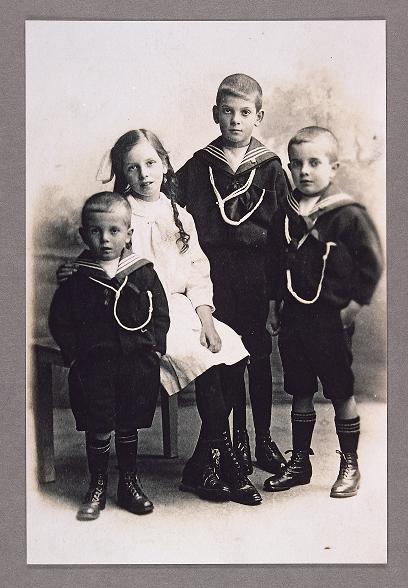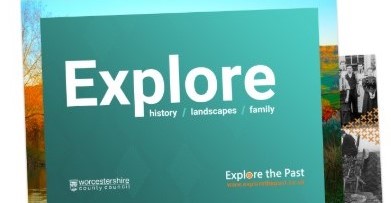Thinking of Starting Family History? How to prepare yourself
- 18th April 2020
Family history is very popular, and we regularly get asked about how to get started. People may be inspired by Who Do You Think You Are?, reading an article, coming across old photos, speaking to relatives or wanting to solve a puzzle. Another prompt can be having a bit of extra time, maybe after retirement or change in hobbies, after thinking about doing family history for a while. With the extra time available due to having to spend more time at home we know some people are thinking of making of start of family history.

Have photos like these inspired you to look into your family?
We have many years experience helping people with their family history, through workshops, helping people visiting the archives and also from personal experience of tracing our family trees (so we are able to empathise you!). So we have a number of tips to pass on.
Prepare Yourself
Although many people want to begin by searching for names, it is best to prepare yourself first.
- What do you know? Jot down what information you have. You can write it down as notes or use a family tree template such as http://www.bbc.co.uk/history/familyhistory/documents/pedigree_chart.pdf. This helps you understand what you know, how people are connected, and what are the gaps you need to know.
- Ask relatives – is there anyone you can ask? This can be a good excuse for giving people a ring during the lockdown! If there aren’t any older generations (and we know that often people may the oldest in their family now) are there cousins or other relatives who might know something.
- Family stories – these may be rumours and may not be quite right, but often there can be a bit of truth in there, for instance it wasn’t your Great-granddad who came from Ireland, it was his father. Or exact relationships between distant family members may get a bit confused. These stories are a starting point to search for and see what you find.
- Certificates – does anyone in the family have a collection of birth, marriage and death certificates for family members? Or does anyone have letters of photos? Or kept details of family members? Ask around, because we know lots of times when people ask they discover a cousin has information they didn’t know about. Often that person hasn’t said because they didn’t know others would be interested. This may be unique information we would never have, or would save you time searching for these records.
- There are various guides which can help. Normally we’d be running our workshops (keep an eye out for these when we are back to normal) where we share of knowledge and advice. We have 70 page research guide which you can download https://www.explorethepast.co.uk/discover-your-past/ which explains about the resources we hold here.

Our Research Guide
Once you have gathered information you can then start searching, which we’ll look at on a future blog, but we always recommend spending time preparing yourself.
Post a Comment